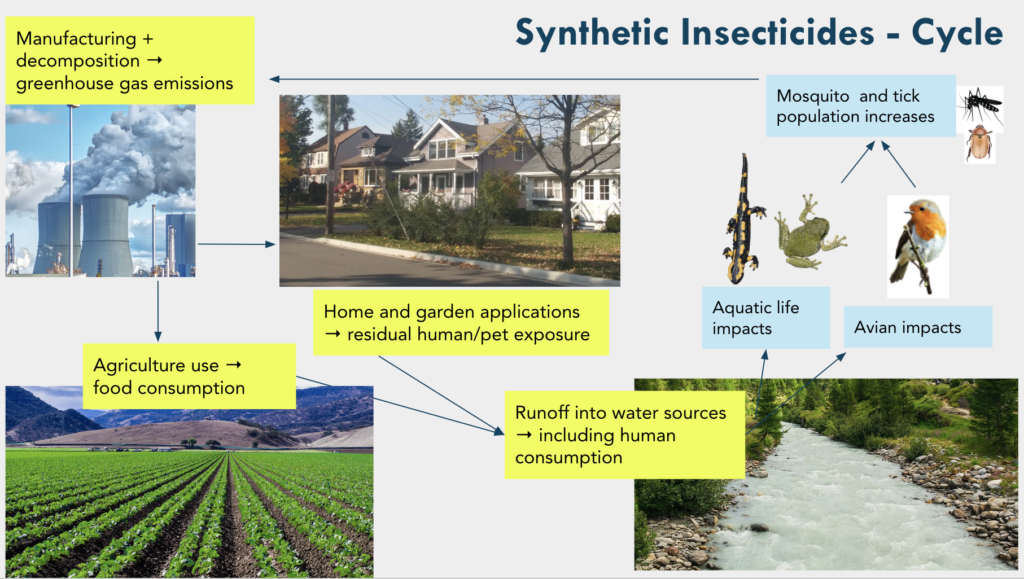Environmental Impacts of Synthetic Chemical Application
The 21st century has witnessed remarkable advancements in science and technology, including innovative synthetic chemical development. In this article, we delve into the complex relationship between synthetic chemicals and their impact on the environment.
By Jasmine Singh
Synthetic chemicals are man-made compounds designed to fulfill various industrial and commercial purposes. These are ubiquitously found in products ranging from everyday household items to advanced technologies. While these chemicals have revolutionized industries and created efficiencies, myriad environmental impacts can be considered.
Volatility: Some synthetic chemicals, when released into the environment, can undergo chemical reactions that produce greenhouse gasses as byproducts. For instance, volatile organic compounds (VOCs) emitted from paints, solvents, and cleaning products can contribute to the formation of ground-level ozone, a greenhouse gas.
Persistence and Ecology: Many synthetic chemicals are designed to be stable and long-lasting, resisting natural degradation mechanisms. This persistence can lead to their accumulation in the environment over time. Specifically, these chemicals can accumulate in soil and water bodies, potentially contaminating drinking water sources, agricultural lands, and aquatic ecosystems.
These downstream effects can negatively impact avian and aquatic species, with consequences for other ecology. For example, salamander eggs can be destroyed by widely utilized pesticides, allowing for mosquito populations to flourish with fewer predators.

Mitigation and Sustainable Alternatives
Green Revolution: Scientists and innovators continue to develop natural, sustainable products to replace traditional options. Dara Scientific, in the realm of insecticides, is dedicated to building powerful plant-based pest control solutions.
General Awareness: Educating consumers about chemical lifecycles and negative effects can drive demand for eco-friendly products and encourage responsible consumption. This works in tandem with increased government oversight and regulation of synthetic chemical applications.
By prioritizing the development of sustainable alternatives, responsible use and disposal practices, and robust regulatory frameworks, we can mitigate the negative consequences of chemical degradation and work towards a healthier and more resilient planet.



